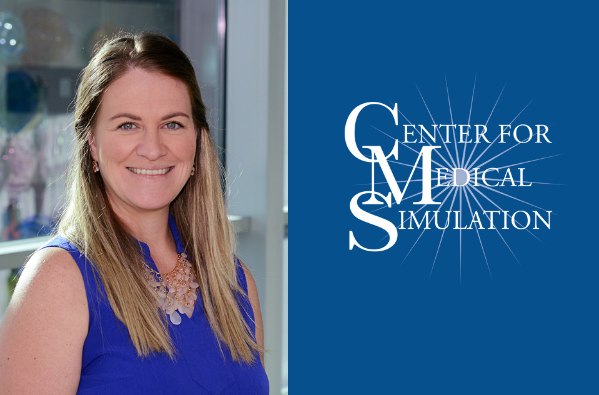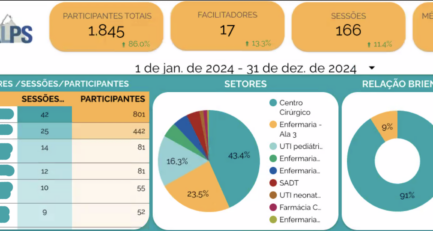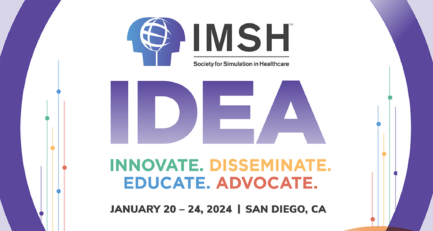
“Regardless of how smart, talented, and well-trained you are/perform, you still have to talk about how you can improve,” says Breah Chambers, DNP, APRN, FNP-C, Clinical Assistant Professor at the University of Kansas School of Nursing.
“I think it’s the vulnerability… It forces reflection on practice and evens the playing field for every learner. Clearly, for this to REALLY happen, the safe container has to FEEL safe for every learner. By encouraging risk-taking and stepping out of the comfort zone, we can get learners to really practice what they need to work on- which, I think, makes for the best debriefings. I believe that it’s helping change our healthcare culture in a direction that encourages people to continuously reflect on their practice and constantly improve themselves.”
Breah first became involved in simulations as a graduate teaching assistant, helping to run and write scenarios. When she became a faculty member at the University of Kansas, she began teaching simulation. As a part of her teaching appointment, she had the opportunity to collaborate with the Zamierowski Institute for Experiential Learning (ZIEL):
“We did some in-house debriefing training which was helpful. I had heard of/tried to use the AI [Advocacy and Inquiry] questioning before but never understood where it came from or what the intention was behind it. Since I was the lead School of Nursing (SON) simulation faculty at ZIEL, the SON sent me to the full- week CMS debriefing course.”
Breah took CMS’ Comprehensive Instructor Workshop, a course that has become essential for healthcare professionals, faculty members, and simulation center directors around the world. The five-day course focuses on simulation design and debriefing using the Debriefing with Good Judgment© method. Learning the theories and getting the chance to practice debriefing helped Breah master her skills:
“Before I was using the AI questions and trying to uncover frames but I wasn’t sure about why I was doing all of that. This course gave me more practice with debriefing and simulation–building while helping ground all of those processes I’ve used before in a theoretical framework. This was especially important during our simulation curriculum revisions as I was recommending additional resources and faculty to our administration.”
After completing the course, Breah was invited to take part in the pilot of CMS’ Online Debriefing Refresher Course. “The online course helped me polish up on my debriefing a bit. I’ve even felt confident enough to provide some of the new faculty with feedback on their debriefing of simulations,” she says.
Breah is applying the skills and techniques she learned in Boston to help introduce medical students to simulation-based education.
“Here at KU we are finishing our last of 8 consecutive simulations in a 2-year longitudinal interprofessional curriculum. M1s and N3s work together through simulations 1-4 during their first year of school. The M2s and N4s work together through simulations 5-8 in their second year of school. Each simulation focuses on TeamSTEPPS® skills in a clinical context that the students are currently covering or have covered in their didactic education. Each simulation builds upon the previous one adding complexity to the cases and more dynamic energy to the team. For me, the highlights of the debriefings are when the students recognize the contributions of other professions and state things like ‘we can’t treat patients without each other’.
This simulation curriculum gives the medical students a clinical component to their learning in the first 2 years which previously didn’t exist. It’s nice to expose the students to other professions and teamwork skills really early in their education. Though our nursing students are in clinical rotations throughout their 2-year education track, learning from other professions on clinical units can be intimidating and requires the student to step out of their comfort zone in an area where it may not feel safe to do so. We have respiratory therapy, clinical lab sciences, and pharmacy join some of the simulations which adds an even richer interprofessional teamwork dynamic and discussions in the debriefings. The simulations also focus on urgent/emergent cases which students generally are not able to practice in a live clinical environment.”

